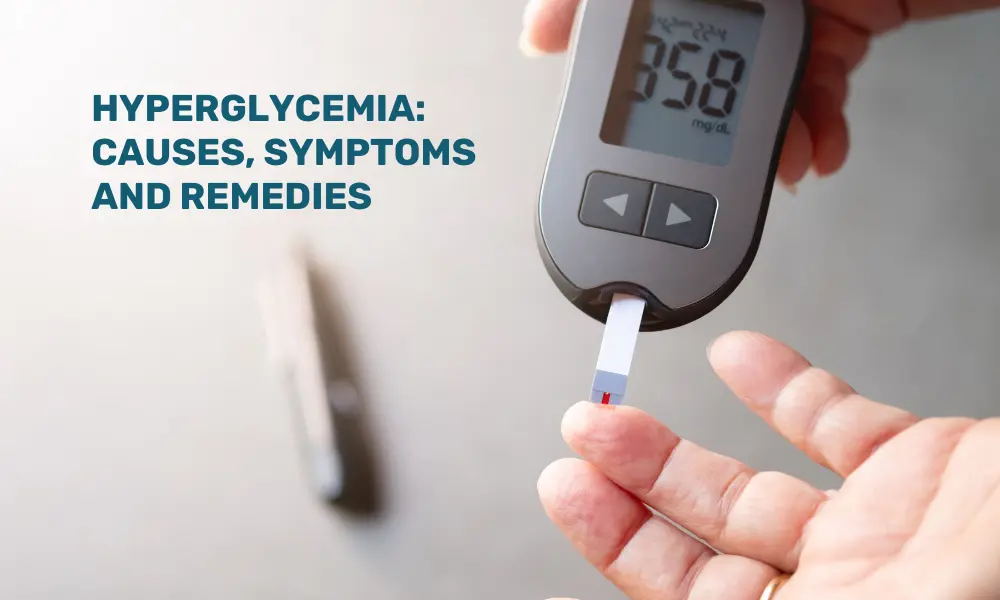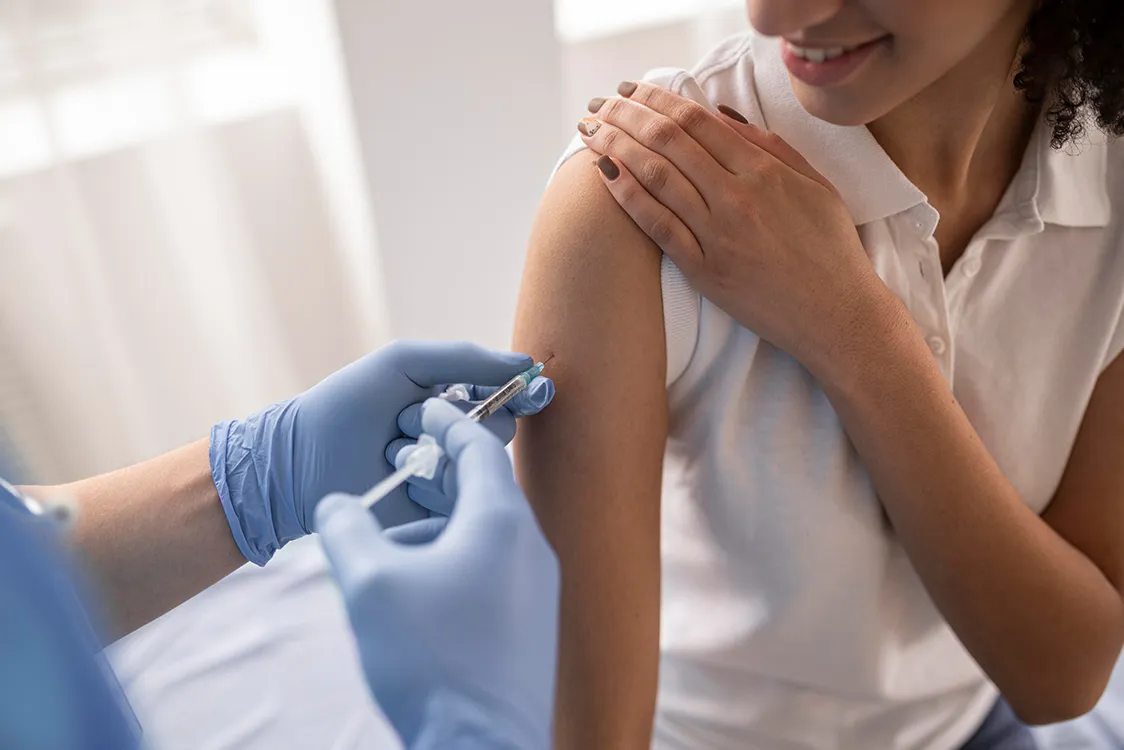Hyperglycemia is a health condition associated with diabetes. It refers to a high blood sugar level. In Hyperglycemia, an individual loses the body’s ability to regulate blood sugar levels efficiently.
Hyperglycemia occurs when the body produces insufficient insulin or develops insulin resistance. Insulin is one of the most essential hormones that impact our well-being. It is produced by our pancreas. Insulin helps in the absorption of glucose and aids in the generation of energy. This article aims to understand hyperglycemia symptoms and treatment.
Glucose accumulates in the bloodstream when the body’s insulin level is insufficient or excessive, resulting in high blood sugar levels.
Causes of Hyperglycemia
-
Poor dietary choices: A diet with too many carbohydrates, sugary foods, and drinks can spike blood sugar levels.
-
Insufficient insulin: In type 1 diabetes, the body loses its capacity to produce sufficient insulin, resulting in a lack of insulin production. However, in type 2 diabetes, the body becomes resistant to insulin, and the pancreas cannot produce insulin.
-
Illness or stress: Any type of illness or stress can cause a blood sugar spike. Hence controlling stress in vital to keep Hyperglycemia at bay.
-
Medication or insulin dosage: It is important for people who already have diabetes to take insulin doses and receive treatment regularly. Not taking proper medication on time can cause Hyperglycemia.
-
Lack of physical activity: A lifestyle with less physical activity may cause insulin resistance and result in high blood sugar levels.
Symptoms of Hyperglycemia
The early signs and symptoms of Hyperglycemia may include:
-
Frequent urge for urination
-
Slower recovery of wounds
-
Vision problems
-
Feeling thirsty often
-
Fatigue and tiredness
Remedies of Hyperglycemia
Here are a few home remedies and lifestyle changes that can help control Hyperglycemia:
-
Dietary changes: One must adopt healthy dietary habits to control blood sugar and prevent Hyperglycemia; this may include
-
We must eat a low-carbohydrate diet, vegetables, fruits (in moderation), lean proteins, and healthy fats.
-
One must avoid processed foods, sugary beverages, and foods high in refined carbohydrates.
-
Monitor portion sizes to avoid overeating.
-
Stay hydrated: Consume plenty of water or fluid throughout the day, as dehydration can raise blood sugar levels.
-
Weight management: Maintaining a healthy weight and ideal BMI through a balanced and fiber-rich diet and an active lifestyle is crucial for reducing the risk of developing or managing Hyperglycemia.
-
Stress management: Stress is considered harmful to our overall health. However, chronic stress can also impact our blood sugar levels. Therefore, one must actively control stress and indulge in stress-reduction activities.
- Adequate sleep: Insufficient sleep may cause hormonal imbalance and cause insulin resistance. Therefore, one must prioritize sleeping adequately for at least seven hours or more.
-
Monitor blood sugar levels: Regular monitoring of blood sugar levels is critical. Tracking levels can help understand how the body responds to different foods, activities, and treatments.
-
Regular exercise: Being physically active helps our body use insulin more efficiently and can help reduce our blood sugar levels. One must aim for at least 30 minutes of moderate-intensity workout most days of the week, but under professional guidance before starting any new exercise regimen.
-
Herbal remedies: Certain herbs and supplements, like cinnamon, fenugreek, and chromium, may have modest effects on lowering blood sugar levels. However, it is important to consult a doctor before taking any supplements, as they may interfere with medications or have side effects.
Hyperglycemia must be identified and treated timely because if not treated it can lead to severe complications, such as hyperosmolar hyperglycemic state or diabetic ketoacidosis, both of which are medical emergencies. Therefore, one must adopt a healthy lifestyle and reduce the risk of developing this health condition.
FAQ on Hyperglycemia
What are the causes of Hyperglycemia?
-
Insufficient insulin
-
Poor dietary choices
-
Lack of physical activity
-
Inadequate medication
-
Illness or stress
Can Hyperglycemia be treated at home?
Certain herbs and supplements, like cinnamon, fenugreek, and chromium, may have modest effects on lowering blood sugar levels. However, it is crucial to consult a doctor before taking any supplements, as they may interact with medications or have side effects.
What are the symptoms of Hyperglycemia?
-
Frequent urge for urination
-
Slower recovery of wounds
-
Vision problems
-
Feeling thirsty often
-
Fatigue and tiredness
Can drinking water reduce Hyperglycemia?
Staying hydrated and consuming plenty of water or fluid throughout the day is vital, as dehydration can raise blood sugar levels. However, drinking water is just one of the many factors that control Hyperglycemia.
How do you control sugar immediately?
Blood sugar levels can be controlled immediately by taking fast-acting insulin medication prescribed by a healthcare professional.





